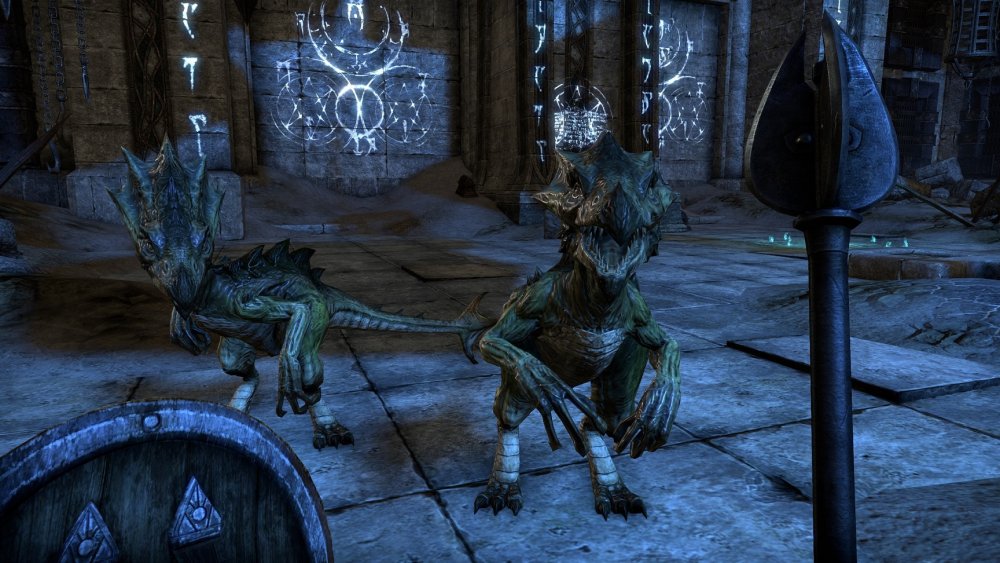In this months' installment of MMO Co-Opportunities, we're going to take a look at The Elder Scrolls Online. Just about everybody on the staff has been interested in a multiplayer Elder Scrolls game, but the beta was a mixed bag for most of us who played it.
Like any good Elder Scrolls game you begin as a prisoner, this time of Molag Bal. There's a tutorial dungeon that details your escape from his clutches, and along the way, you'll meet the Prophet, who lets you know just how special you are. After you escape imprisonment, you'll be dropped square into the world at large. The game is fully-voiced, much like The Old Republic, and you might hear some familiar voices along the way. The Prophet, for instance, is voiced by Michael Gambon, who most of you youngsters might recognize as Dumbledore.
Rather than taking place in a single region of Tamriel like previous Elder Scrolls games, Elder Scrolls Online contains just about the entire continent. Players are split between three Alliances that cover territory in Tamriel - the Ebonheart Pact, Daggerfall Covenant, and Aldmeri Dominion. There is only one server in ESO, so playing with friends is as simple as creating a character in the same Alliance.

When you create a character in ESO, you choose from four basic classes: The Dragonknight (melee/tanking), Sorcerer (magic), Nightblade (melee/debuffer), and Templar (healer). You also choose your race from the usual Elder Scrolls selection (I made a Khajiit Nightblade, but I don't deal in skooma, sorry). If you sprang for the Imperial Edition of the game, you may choose any race, regardless of Alliance, but all other players must first choose from one of the three Alliances before picking one of its races.
While choosing your class is important in defining your specialties, every character can slot skill points to various armor, weapon, crafting and (NPC) guild-specific abilities. A friend of mine playing the game has actually done an experiment where he only chose a handful of combat abilities, instead focusing on exploration and crafting skills. While this makes him more of a liability in combat, it's encouraging that the system gives a few concessions to people who might want to do some actual roleplaying.
Skill points are treated in an interesting way - while you have an ability from a certain tree slotted to your hotbar, you will gain experience in that line, such as the Assassination tree for Nightblades. As you gain levels, complete certain quests or collect Skyshards in the world, you will also gain skill points to assign. Abilities only become unlocked for you to acquire once you've leveled its parent tree sufficiently. Your abilities may also be morphed into more powerful versions of themselves, should you so choose.
